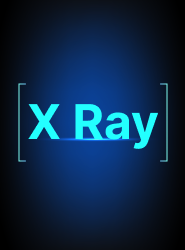RaymanTech Whole-Chain Solution: A Deep Dive
Introduction: Why a Whole-Chain Approach Matters
Food safety and quality control demands have evolved dramatically. Modern food processors can no longer rely on spot-checks or isolated inspection points — contaminants, defects, and non-conformities can originate at any stage: raw ingredients, processing, or final packaging. RaymanTech’s Whole-Chain Inspection & Sorting Solution is designed to tackle this challenge by integrating multiple inspection technologies throughout the entire production line. This ensures comprehensive coverage, reduces risks, and improves yield and consistency.
Stage 1: Raw Material Inspection
Goal: Detect and remove foreign bodies, low-density contaminants, and other defects before products enter the main processing line.
Key Technologies & Capabilities:
RaymanTech employs X-ray systems that can detect both high-density contaminants (like metal) and low-density organic or non-metallic ones (like plastic, bone, or stones).
The dual-energy X-ray systems enable differentiation of materials based on how they absorb different energy levels. This is especially useful for identifying thin contaminants or organic matter.
These systems can operate in bulk (loose, unpackaged raw materials), giving early warnings before materials enter further processing.
AI Optical Sorting:
RaymanTech uses AI-driven optical sorters to analyze color, shape, surface texture, and micro-impurities.
For example, in the nut industry, the optical sorter can remove shells, leaves, hairs, insect fragments, and other micro-impurities at the raw intake stage.
Multiview imaging (from different angles) increases accuracy, helping detect unusual shapes, discoloration, or foreign objects that are visually distinct.
Benefits at This Stage:
Significantly reduces the risk of large defects entering the production line.
Minimizes downstream waste — catching contaminants early means less rework or recall risk later.
Boosts throughput efficiency: cleaning out bad raw material prevents process line disruptions.
Stage 2: In-Process (Processing) Inspection
Goal: Monitor and inspect the product during production (or after critical processing steps) to catch defects, ensure consistency, and maintain quality.
Key Technologies & Capabilities:
In-line AI X-Ray Systems:
Even during processing (e.g., after mixing, cutting, forming), RaymanTech’s X-ray systems can inspect for internal contaminants, structural defects, or density anomalies.
They support functions beyond foreign-body detection: defect inspection, filling-level control, and color recognition.
Their systems are capable of counting, virtual weighing, and even fat content analysis in some models.
AI Optical Sorting During Processing:
RaymanTech’s optical sorters can run concurrently with processing lines to spot shape deformities, color inconsistencies, or micro-level anomalies.
Because of their AI and multi-view imaging, they can dynamically adapt to different product phases (e.g., after slicing, roasting, or forming).
Hygienic Design and IP Protection:
Some of RaymanTech’s machines are built to IP69K specifications, which makes them suitable for environments with frequent washdowns (important in food processing).
This ensures that inspection equipment doesn’t compromise hygiene in the process area and is robust enough for industrial cleaning cycles.
Benefits at This Stage:
Real-time quality feedback — catching inconsistencies mid-process allows for immediate correction.
Higher yield: defective or malformed items are removed or flagged before final packaging.
More consistent product profile (shape, weight, fill, etc.), which improves brand quality.
Stage 3: After-Package (Final) Inspection
Goal: Ensure finished, packaged products meet food safety and quality standards — no contaminants, correct fill, good sealing, and proper weight.
Key Technologies & Capabilities:
X-Ray Inspection (Packaged Products):
RaymanTech’s X-ray systems support bottles, cans, jars, and other packaged formats.
Dual-energy X-ray technology can detect dense and low-density contaminants even inside sealed or opaque packaging.
It also handles seal inspection, detecting missealed caps, wrinkles, or leaks.
Additional functions include virtual weighing (estimating weight via X-ray), missing part detection, and container fill-level checks.
Vision Systems & AI Checkers:
RaymanTech integrates AI-powered vision for shape recognition and color verification, useful for checking appearance defects, mislabeling, or packaging anomalies.
These systems can also check for micro-impurities, foreign matter, or even insect erosion visible through transparent packaging.
For weight-sensitive products, RaymanTech’s systems support virtual weighing and digital counting, reducing reliance on mechanical checkweighers while maintaining high accuracy.
Sealing & Integrity Control:
The solution supports seal inspections to ensure that containers are properly sealed, which is critical for shelf life and food safety.
It can also detect half-filled, empty, or improperly filled packages through density analysis or fill-level algorithms.
Benefits at This Stage:
Final safety net — prevents contaminated or defective products from reaching customers.
Less recalls and brand risk — better detection of sealing issues, wrong fills, or missing parts.
Technical Advantages and Innovation Highlights
AI-Driven Intelligence: Across all stages, RaymanTech’s systems are powered by AI algorithms, enabling advanced pattern recognition, anomaly detection, and adaptive learning.
Multi-Modal Detection: The use of dual-energy X-ray plus multi-view optical imaging means material differentiation is highly accurate, reducing false positives and improving detection sensitivity.
Hygienic Design: Some systems reach IP69K rating, making them wash-down capable for food processing environments.
Data & Connectivity: RaymanTech supports data transfer, remote support, and integration into production data systems.
Flexible Configurations: Their product lines (X-ray tunnel, side-shooter, bulk, dual energy) allow tailoring for different production scales, product types, and inspection goals.
Cross-Industry Readiness: Whether for nuts, confectionery, meat, seafood, or packaged goods, RaymanTech’s whole-chain solution effectively adapts to diverse applications.
Use-Case Scenario: Nuts Processing Example
To illustrate how the whole-chain solution works in practice, consider a large-scale nut processing plant:
Raw Intake:
Raw nuts arrive in bulk. RaymanTech’s AI optical sorter removes shells, leaves, and micro-debris (like hair or insect parts).
A bulk X-ray system scans for hidden stones, dense foreign bodies, or non-nut debris.
In-Process:
After shelling or roasting, nuts pass under an in-line X-ray system , which detects small bone fragments, broken shells, or embedded foreign objects.
An optical sorter checks for broken pieces, discoloration, or misshapen nuts, rejecting those that don’t meet the quality criteria.
Final Packaging:
Nuts are packaged into bags or jars. A sealed-package X-ray system inspects for contaminants, improper fill, or seal integrity.
An AI vision system verifies label integrity, color consistency, and ensures no debris or defects are visible in the final package.
As a result, the processor dramatically reduces recall risk, improves product consistency, and minimizes waste — all while maintaining throughput and quality.
Conclusion
RaymanTech’s Whole-Chain Inspection & Sorting Solution represents a forward-thinking, technically advanced framework for modern food manufacturing. By combiningAI-powered X-ray inspection , optical sorting, and vision-based quality assurance, RaymanTech covers all critical stages: raw material intake, in-process quality, and final packaged inspection.
This end-to-end strategy not only enhances food safety and brand protection, but also optimizes yield, reduces waste, and streamlines operations. For processors striving for excellence in food quality, RaymanTech’s whole-chain solution is a robust, scalable, and intelligent choice.

Related Articles
-
 Nov-21-2025
Nov-21-2025RaymanTech X-ray Inspection Systems: The Complete Guide to a Smarter, Safer Production Line
When a single shard of glass, a fragment of bone, or an unnoticed plastic tie can trigger a multimillion-dollar recall and shatter consumer trust, food manufacturers can no longer rely on yesterday’s detection technology. RaymanTech has built an entire ecosystem of X-ray inspection solutions that go far beyond traditional metal detectors, delivering density-based, shape-aware, AI-enhanced inspection across every product format imaginable.learn more -
 Nov-21-2025
Nov-21-2025Introduction to RaymanTech Optical Sorters for Farm Products and Food Processors
RaymanTech, as a leading provider of inspection and sorting solutions, has developed a comprehensive optical sorter portfolio that now serves both farm-product applications and food-processing environments. While farm-product sorters focus on capacity, adaptability, and raw-material variability, food-processor-grade sorters must also incorporate high IP protection, robust stainless-steel construction, sanitary design, and harsh washdown compatibility.learn more -
 Nov-21-2025
Nov-21-2025How Safe is X-ray Inspection of Food?
Consumers and manufacturers alike worry about contamination in food – broken glass, metal fragments, plastic or stone – entering a product and harming someone or prompting a recall. X-ray inspection systems have become a key solution: conveyors carrying packaged or unpackaged food pass through a shielded X-ray machine that “sees” inside each item. This technology complements traditional metal detectors and manual checks to catch a wider range of hazards. Importantly, extensive research and industry experience show that food X-ray inspection is extremely safe. Nearly everything we eat – from spices to snacks – is X-rayed at some point during production, and regulatory bodies (like the FDA) report “no known adverse effects” from the low-dose X-ray scans used in food plants.learn more

Quick Links
Contact
Tel: 717-490-1513
Add: 1050 Kreider Drive -
Suite 500, Middletown,
PA 17057







